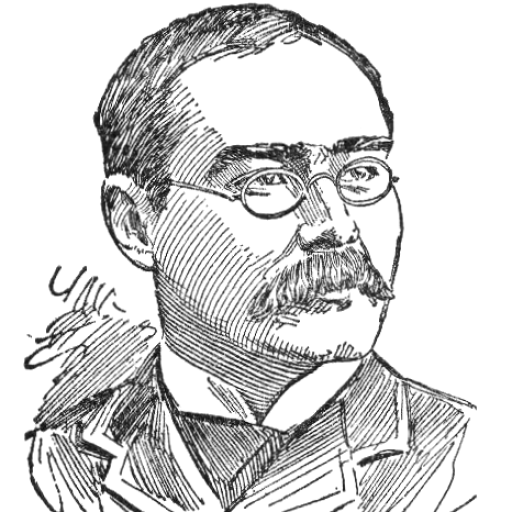Make ye no truce with Adam-zad, the Bear that looks like a Man!
The bear has the symbol for Russia since the sixteenth century. The cartoon above is from 1904, six years after Kipling wrote ‘The Truce of the Bear’. This is one of several poems and stories of Kipling about Afghanistan, set in the framework of the century-long “Great Game” between the British Empire and the Russian Empire for control of Afghanistan (see ‘The Ballad of the King’s Jest’).
Throughout the Cold War, the Soviet Union mounted enormous propaganda for “peace”, for universal disarmament, for banning of all nuclear weapons (all without any effective verification), and countless ‘progressive intellectuals’ in Western Europe were taken in and pressed for unilateral disarmament. That was the time to remember the message of this poem.
After 1991 Russia allowed the other fourteen countries of the former USSR to become independent and sought economic collaboration with the West (in particular oil and gas exports to Europe). Since then, many in the West started demanding reductions in military expenditure, and considered that NATO had become obsolete since the economic interests of Russia had aligned with those of the West, so surely Russia will keep the peace.
The Russian invasion of Ukraine was a rude wake-up call. It showed that Putin is bent on regaining Russia’s former empire, regardless of the cost to Russia itself and to the countries of the former Soviet Union and to world more generally. Since the start of the invasion Russia has threatened using nuclear weapons against anyone standing in its way. This has reminded all of us that the danger posed by an adversary must be measured by his capability to harm us, not by his professed intentions; that until those nuclear-tipped paws are de-clawed,
“Make ye no truce with Adam-zad – the Bear that walks like a Man!”
The Truce of the Bear
Yearly, with tent and rifle, our careless white men go By the Pass called Muttianee, to shoot in the vale below. Yearly by Muttianee he follows our white men in - Matun, the old blind beggar, bandaged from brow to chin. Eyeless, noseless, and lipless - toothless, broken of speech, Seeking a dole at the doorway he mumbles his tale to each; Over and over the story, ending as he began: "Make ye no truce with Adam-zad - the Bear that walks like a Man!" "There was a flint in my musket - pricked and primed was the pan, When I went hunting Adam-zad - the Bear that stands like a Man. I looked my last on the timber, I looked my last on the snow, When I went hunting Adam-zad fifty summers ago! "I knew his times and his seasons, as he knew mine, that fed By night in the ripened maize-field and robbed my house of bread. I knew his strength and cunning, as he knew mine, that crept At dawn to the crowded goat-pens and plundered while I slept. "Up from his stony playground - down from his well-digged lair - Out on the naked ridges ran Adam-zad the Bear - Groaning, grunting, and roaring, heavy with stolen meals, Two long marches to northward, and I was at his heels! "Two long marches to northward, at the fall of the second night, I came on mine enemy Adam-zad all panting from his flight. There was a charge in the musket - pricked and primed was the pan - My finger crooked on the trigger - when he reared up like a man. "Horrible, hairy, human, with paws like hands in prayer, Making his supplication rose Adam-zad the Bear! I looked at the swaying shoulders, at the paunch's swag and swing, And my heart was touched with pity for the monstrous, pleading thing. "Touched with pity and wonder, I did not fire then . . . I have looked no more on women - I have walked no more with men. Nearer he tottered and nearer, with paws like hands that pray - From brow to jaw that steel-shod paw, it ripped my face away! "Sudden, silent, and savage, searing as flame the blow - Faceless I fell before his feet, fifty summers ago. I heard him grunt and chuckle - I heard him pass to his den. He left me blind to the darkened years and the little mercy of men. "Now ye go down in the morning with guns of the newer style, That load (I have felt) in the middle and range (I have heard) a mile? Luck to the white man's rifle, that shoots so fast and true, But - pay, and I lift my bandage and show what the Bear can do!" (Flesh like slag in the furnace, knobbed and withered and grey - Matun, the old blind beggar, he gives good worth for his pay.) "Rouse him at noon in the bushes, follow and press him hard - Not for his ragings and roarings flinch ye from Adam-zad. "But (pay, and I put back the bandage) this is the time to fear, When he stands up like a tired man, tottering near and near; When he stands up as pleading, in wavering, man-brute guise, When he veils the hate and cunning of his little, swinish eyes; "When he shows as seeking quarter, with paws like hands in prayer, That is the time of peril - the time of the Truce of the Bear!" Eyeless, noseless, and lipless, asking a dole at the door, Matun, the old blind beggar, he tells it o'er and o'er; Fumbling and feeling the rifles, warming his hands at the flame, Hearing our careless white men talk of the morrow's game; Over and over the story, ending as he began: - "There is no truce with Adam-zad, the Bear that looks like a Man!"

